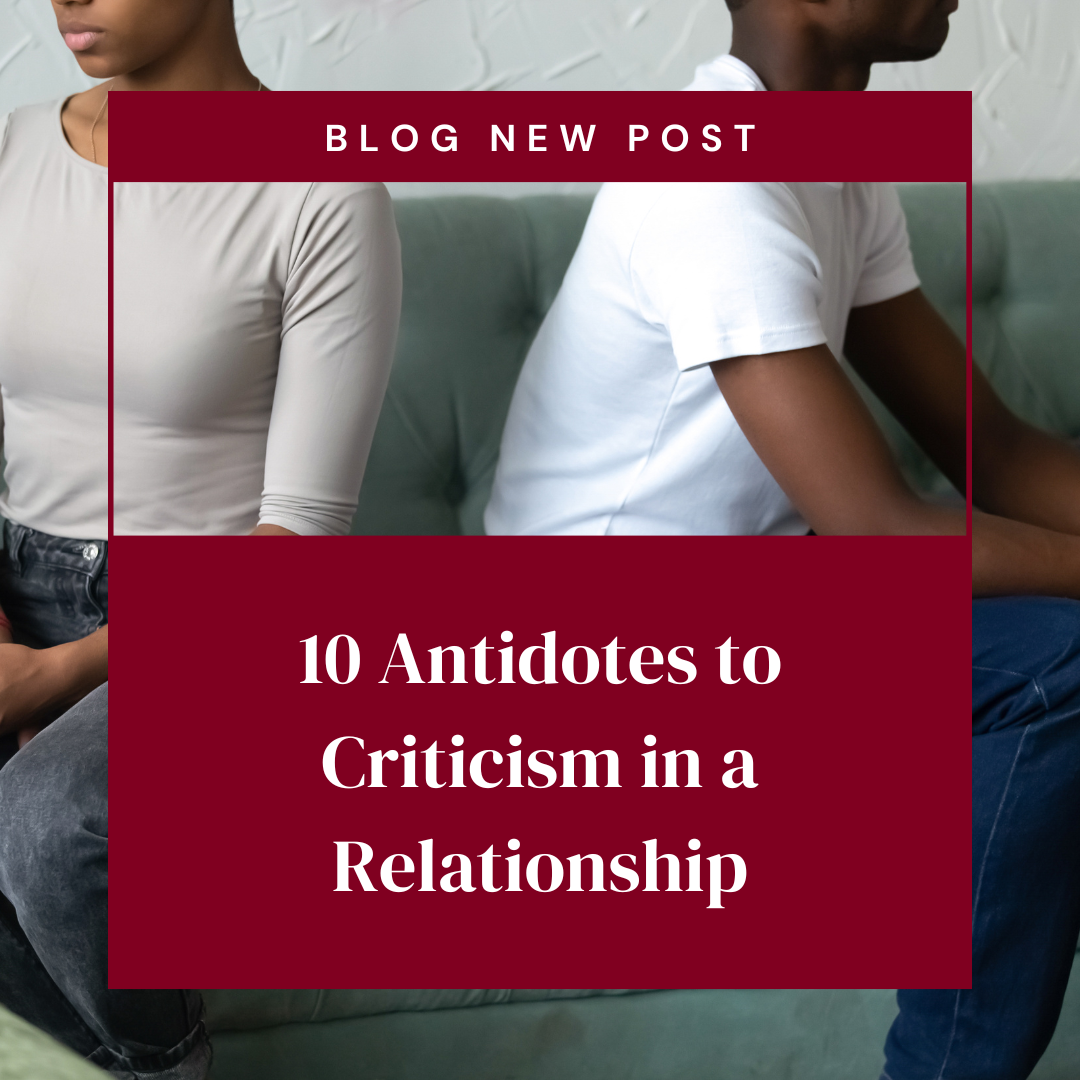10 Antidotes to Criticism in a Relationship
Dr. John and Dr. Julie Gottman, are renowned relationship experts. They emphasize the importance of handling criticism effectively in relationships. Criticism can be damaging to relationships, but there are ways to counteract it and promote healthy communication. Here are some strategies to counteract criticism in a relationship:
Use "I" Statements: Instead of placing blame or making accusatory statements, express your feelings and concerns using "I" statements. For example, say "I feel hurt when..." or "I'm concerned about..."
Be Specific and Concrete: When discussing a concern, provide specific examples of the behavior or action that bothered you. Clear examples help your partner understand the issue and work towards a solution.
Focus on Behavior, Not Personality: Criticizing a person's character or personality can be hurtful. Instead, address specific behaviors or actions that are causing the problem.
Express Your Needs and Desires: Clearly communicate your needs and desires to your partner, but do so in a constructive and non-blaming manner. Discuss how both of you can work together to meet each other's needs.
Offer Constructive Suggestions: Instead of just pointing out what's wrong, offer constructive suggestions or alternatives that can help address the issue and improve the situation.
Choose the Right Time and Place: Pick an appropriate time and place to discuss concerns. Avoid addressing sensitive topics when either of you is angry, stressed, or distracted. Create a conducive environment for open communication.
Listen Actively: Allow your partner to express their perspective and concerns. Show empathy and understanding, even if you don't agree. Active listening promotes understanding and strengthens the relationship.
Apologize and Forgive: If you realize you've made a mistake, apologize sincerely. Likewise, be willing to forgive your partner when they acknowledge their actions and apologize. Forgiveness is crucial for healing and moving forward.
Seek Compromise: Work together to find a middle ground that meets both your needs and concerns. A healthy relationship involves give and take from both partners.
Relationship Counseling: If communication issues persist, consider seeking the help of a relationship counselor. A professional can provide guidance and techniques to improve communication and resolve conflicts.
Addressing criticism effectively and fostering a culture of understanding and respect, helps maintain a loving and fulfilling partnership. As adults and with busy lives, it may be sometimes hard to take care of ourselves in a consistent way. Make sure you’re eating enough, drink plenty of water, and get good quality sleep. That's the first step towards addressing conflict! Try to practice mindsight’s lens: objectivity, observation, and openness. Look for how you’re contributing to your relationship patterns instead of solely pointing fingers at your partner.
If you’d like personalized support managing conflict in your relationship, click here to request a session.
*Please note that these suggestions are not directed to relationships where intimate partner violence is taking place.*
I am a PhD in Clinical Sexology candidate at Modern Sex Therapy Institutes and have a Master of Science in Educational Psychology. I work with individuals, couples, non-monogamous relationships, and groups in topics related to sexuality, emotional regulation, communication dynamics, and changing behaviors.


